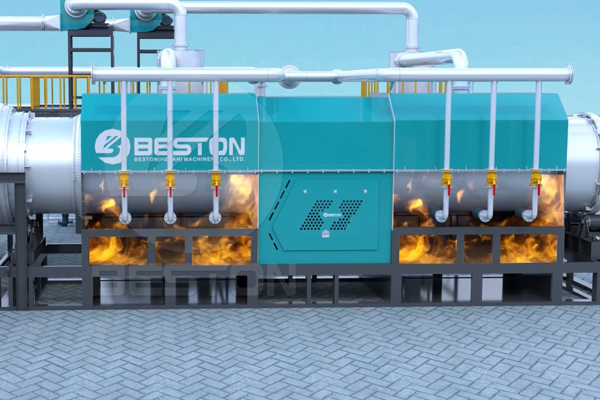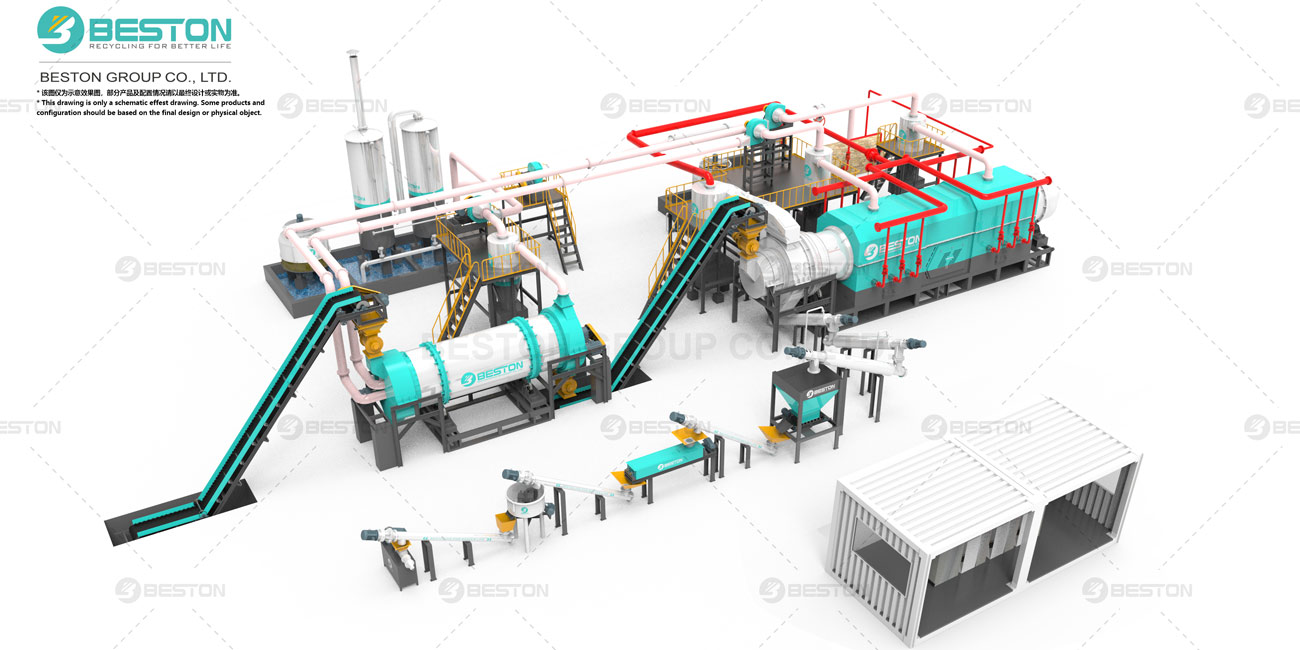The charcoal making industry has traditionally relied on burning wood to convert biomass into fuel. While this method provides charcoal, it raises environmental concerns due to deforestation and greenhouse gas emissions. Syngas recycling technology offers a game-changing solution by introducing a more sustainable and efficient charcoal production process.
What is Syngas?
Syngas, short for synthesis gas, is a versatile fuel produced by thermochemical conversion of organic matter in a charcoal making machine. This process, often called gasification, involves heating biomass like woodchips, sawdust, or agricultural waste in an oxygen-limited environment. The resulting gas mixture consists primarily of hydrogen, carbon monoxide, methane, and carbon dioxide.

Syngas Recycling Technology in Charcoal Machines
Traditional wood charcoal machine burns wood in a closed chamber, driving off volatile components and leaving behind charcoal. Syngas recycling technology integrates gasification into the charcoal production process. Here’s how it works:
- Feeding Biomass: The machine is fed with biomass waste like woodchips, sawdust, or agricultural residues.
- Gasification: The biomass undergoes gasification in a chamber with limited oxygen. This process generates syngas along with some condensable liquids and char (partially combusted biomass).
- Heat Source: The syngas is then combusted in a separate chamber, providing the heat required for the gasification process itself. This creates a self-sustaining heating cycle, reducing reliance on external fuel sources.
- Charcoal Production: The remaining char from the gasification stage continues the traditional charcoal making process within the machine. The heat generated from burning syngas cooks the char, converting it into high-quality charcoal.
- Syngas Cleaning (Optional): Depending on the desired syngas application, it can be further cleaned to remove impurities like tar and particulates.

Benefits of Syngas Recycling Technology
Syngas recycling technology offers a multitude of advantages over conventional charcoal making methods:
Reduced Environmental Impact
- Waste Reduction: By utilizing waste biomass, syngas technology diverts material from landfills and promotes a circular economy.
- Lower Emissions: The technology significantly reduces greenhouse gas emissions compared to traditional methods. Since syngas is burned efficiently, it produce less carbon dioxide and other pollutants.
- Sustainable Charcoal Production: Syngas recycling allows for charcoal production without relying on deforestation, promoting sustainable forest management practices.
Improved Efficiency
- Self-Sustaining Process: The syngas produced fuels the gasification process itself, minimizing the need for external fuel sources and lowering production costs.
- Increased Charcoal Yield: Syngas technology can potentially lead to higher charcoal yields compared to traditional methods due to more efficient conversion of biomass in a biomass pyrolysis plant.
Versatility of Syngas
- Biofuel Production: The syngas can be further processed into cleaner burning biofuels like biogas or biomethane.
- Power Generation: Cleaned syngas can be used to generate electricity through gas engines or turbines.
- Industrial Applications: The syngas can be utilized for industrial processes requiring heat or as a feedstock for chemical production.
Future of Sustainable Charcoal Production
Syngas recycling technology represents a significant advancement in the charcoal making industry. By promoting waste reduction, lower emissions, and efficient production, this technology paves the way for a more sustainable future. As the technology matures and costs become more competitive, syngas-based charcoal machines are poised to become the standard for eco-conscious charcoal production. Beston Group invites you to delve into further details.